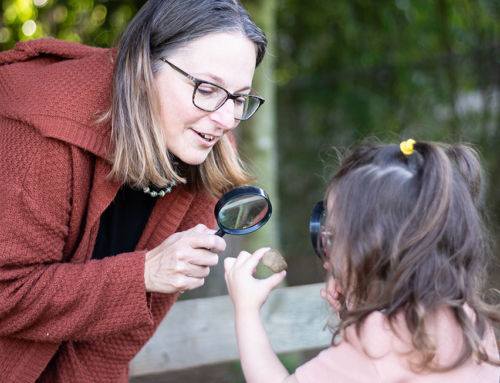I was taking a first year Canadian history course and my professor asked the question,“Why do you think there was a law in Lower Canada that prohibited the cutting down of oak trees?”
I thought to myself, “Oh, I know this one!”
A little background is needed here. I was almost finished my degree, but in order to be a certified teacher in British Columbia at that time, I needed a Canadian geography credit, a math credit, and a Canadian history credit.
So here I was, a “mature” student at the age of 25 taking a first year course with a bunch of first year college kids. By this point in the course, a pattern was emerging. If no one could answer a question posed by the professor, the class would go silent and after a pause, he would ask me if I knew. I often did know the answer and so I had earned a bit of a reputation with my classmates.
When no one could come up with a response to the oak tree question, all eyes turned to me.
“Maple syrup,” I announced with confidence.
My response was greeted with a few coughs and giggles. I didn’t clue in until the professor gently asked, “Maple syrup from oak trees?”
Of course, my answer to his question was silly.
Sticky Thinking
In my own defense, we had just finished reading a chapter in our textbook that had mentioned the beginnings of the maple syrup industry. Still, I obviously had not paid attention to the question. It was a good question; I had just failed to really think it through and therefore I gave a silly answer. (By the way, the real answer to the oak tree question has to do with the shortage of suitable lumber for building ships. The ships were needed to transport all the resources from the colonies back to England and France.)
Amazing that I remember that little fact almost 30 years later. Partially because it was a good question, but also partly because I gave a silly answer and even though my professor and classmates were all quite kind in their responses, my embarrassment burned that question and its appropriate answer deep into my brain.
Asking and grappling
We often learn best from our mistakes. In fact, it’s really difficult to grow and improve if you don’t make mistakes. As teachers, we all need to remember that. We also have to encourage our students to take those risks and to trust the classroom community to respond to our mistakes in ways that don’t belittle or discourage.
I was reminded of this when I had the opportunity to spend some time with our Grade 7 students at Newcastle Island. We explored the Garry Oak ecosystem and discussed why it was unique and valuable.
This led to a conversation with one student about the importance of the oak trees. He asked good questions and hopefully I didn’t give silly answers.
May our students keep asking good questions, and may they have the courage to grapple with the answers.
And next time you are playing a trivia game, you’ll know the answer to why oak trees were so valuable in Lower Canada in the 17th century!






WHAT DO YOU THINK?
Okay, but how did they get the necessary lumber for the ships if they didn’t cut down the trees?
Good question! The was a law prohibiting the cutting down of oak trees for any purpose but the making of timbers for ships.